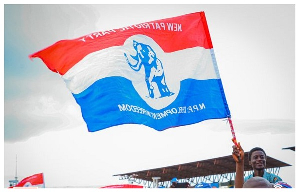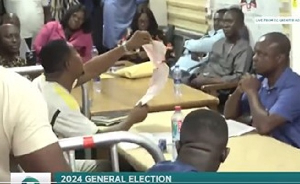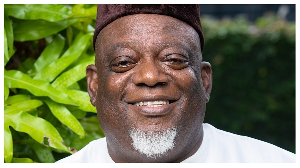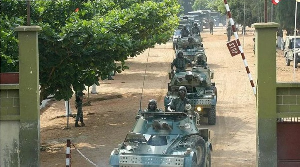Ghana's political history is rife with episodes of sabotage and betrayal, where leaders with genuine intentions for national development have faced relentless opposition from forces that care more about political power than the well-being of the nation.
A consistent pattern emerges when examining the actions of the New Patriotic Party (NPP) and its antecedents: a relentless campaign to undermine, discredit, and ultimately destroy any leader who dares to prioritize Ghana’s development over partisan interests.
The legacies of Dr. Kwame Nkrumah, J.J. Rawlings, Prof. Atta Mills, and most recently, John Dramani Mahama, stand as testaments to this enduring pattern of subversion.
1. Dr. Kwame Nkrumah: The Original Victim of Sabotage
Dr. Kwame Nkrumah, Ghana’s first President and a visionary leader, was subjected to a barrage of lies and conspiracies orchestrated by the NPP’s antecedents. Despite his unparalleled efforts to industrialize and modernize Ghana, Nkrumah was branded a dictator, an enemy of democracy.
The CPP, under Nkrumah, embarked on numerous developmental projects, from the Akosombo Dam to educational reforms, that set the foundation for Ghana’s future.
Yet, instead of supporting these initiatives, NPP’s forerunners conspired with foreign interests to undermine his government, leading to the infamous coup of 1966. This act plunged Ghana into years of political instability, stunting the nation's growth and development.
2. J.J. Rawlings: Demonized for His Reformist Agenda
When Jerry John Rawlings took power, it was on a platform of justice, accountability, and national development. His revolutionary policies, aimed at bridging the gap between the rich and the poor, earned him the ire of the NPP, who branded him a tyrant.
The NPP’s propaganda machinery went into overdrive, spreading false narratives about Rawlings’ intentions, depicting him as a ruthless dictator rather than a reformer seeking to uplift the underprivileged.
His efforts to stabilize the economy, improve healthcare, and enhance education were consistently met with opposition, as the NPP and its allies sought to paint his government as a failure, even in the face of undeniable progress.
3. Prof. John Evans Atta Mills: A Beacon of Peace Undermined
Prof. John Evans Atta Mills, known for his calm demeanor and peace-loving nature, faced similar opposition from the NPP. As President, Mills was committed to enhancing Ghana's socio-economic development through peace and stability.
However, the NPP, unable to contend with his popularity and the people-centric policies of his administration, resorted to character assassination. They spread baseless rumors about his health and leadership capabilities, attempting to sow seeds of doubt among the populace.
The NPP's relentless attacks on Mills' character, coupled with their unwillingness to support his administration’s development agenda, highlighted their prioritization of partisan politics over national progress.
4. John Dramani Mahama: A Visionary Leader Under Siege
John Dramani Mahama’s tenure as President marked a period of significant infrastructural development. From road construction, expansion of ports, airports, power infrastructure, digital infrastructure, educational facilities to health facilities, Mahama’s administration made remarkable strides in transforming Ghana’s physical landscape.
However, these achievements did not sit well with the NPP, who viewed Mahama's successes as a direct threat to their political ambitions. The NPP unleashed a vicious campaign of misinformation, accusing Mahama of corruption and incompetence. They downplayed his government’s achievements, magnified any shortcomings, and created a narrative of doom and gloom that was far removed from reality.
During the 2016 elections, the NPP's campaign was marred by lies and deceit. They promised to reduce electricity tariffs and blamed the energy crisis solely on Mahama’s government, ignoring the global energy challenges and domestic factors beyond his control.
The NPP’s use of disinformation was so pervasive that it clouded the electorate’s judgment, leading to a decision based on falsehoods rather than facts.
Even after his tenure, Mahama’s decision to contest again in subsequent elections has been met with the same old tactics. The NPP continues to spread lies about his intentions, accusing him of seeking power for personal gain, despite his demonstrated commitment to Ghana’s development. The constant vilification of Mahama by the NPP is a clear attempt to derail his efforts to take Ghana’s development to the next level.
Conclusion: The Real Enemies of Progress
The NPP’s history of sabotage against leaders who prioritize Ghana’s development reveals their true nature as perennial saboteurs. Their consistent use of lies, deceit, and character assassination to undermine visionary leaders betrays their lack of commitment to Ghana’s progress. It is high time Ghanaians recognize the destructive pattern of the NPP and reject their politics of deception.
The future of Ghana lies in supporting leaders who are genuinely committed to development, not those who seek power through lies and sabotage. John Dramani Mahama represents the hope of a brighter future, a future that the NPP has consistently sought to destroy.
Ghanaians must stand firm against the NPP's deceitful tactics and support leaders who have demonstrated a true commitment to national development.
Opinions of Monday, 26 August 2024
Columnist: Cletus Siebune



















